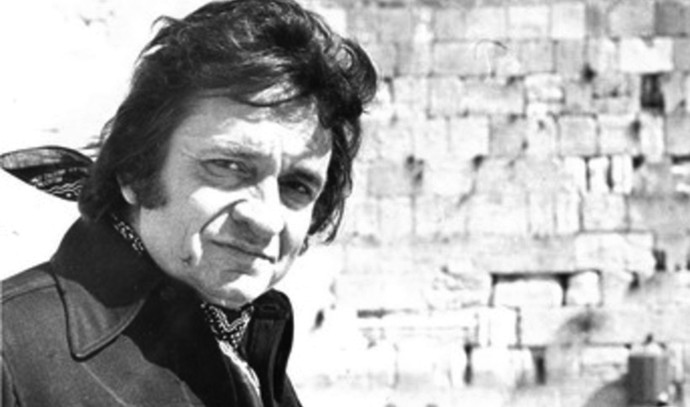September 12 marks 20 years since legendary singer Johnny Cash passed away.
Although rightly recognized for the famous sound that echoes out of his early recordings, like a chugging locomotive heading across the plains or singing about shooting a man just to watch him die, some of his most unique and underappreciated work is his gospel music.
Cash was born in the heart of the Bible Belt in Arkansas during the years following the Great Depression, when religion played a huge role in people’s everyday lives. Songs from the radio filled the air as a young Cash and his family would pick cotton, and singing along was a way to help pass the time.
After his early success in the mid-’50s and early ’60s, Cash’s career took a downswing. Drug addiction, personal problems, and a difficult reputation led to a relatively unfruitful period of forgettable albums; but Cash returned again and again to gospel music and the songs of his childhood. Even one of his most famous albums, At Folsom Prison, is half rebel music and half gospel. After the massive success of that album, recorded live at Folsom Prison during a concert for the inmates, Cash’s popularity was again on the rise, but yet again, the maverick artist wanted to do things his way.
Accompanied by his wife, June Carter Cash, he toured Israel in the summer of 1968, on the couple’s second visit. With a tape recorder in hand, Cash and his wife visited religious sites all over the country, narrating their thoughts and capturing the sights and sounds of the Holy Land.
Unlike with other previously themed albums, Cash didn’t base this album on traditional songs – it is a mixture of spoken-word and Cash-penned numbers (barring three songs). What became the album The Holy Land is a phenomenally personal and passionate profession of his faith. Cash, who had several near-death experiences because of drugs and depression, was deeply religious, and his words and songs as he visits sites such as the Western Wall and tours Nazareth, Cana, Tiberias, and other Christian locations, are moving.
Cash found special connection with Israel’s Christian sites
When visiting the town of Cana on the shores of the Galilee, where Jesus is said to have performed the miracle of turning water into wine, Cash wrote “He Turned The Water Into Wine,” a song that is so simple in melody and lyrics yet so familiar that it seems as if it must be an old gospel classic handed down through the generations. Throughout the album, Cash expresses his exhilaration and emotion at seeing the places he heard about as a young child, which meant so much to him.
Cash returned to Israel in 1971 to film the Christian movie The Gospel Road: The Life of Jesus, but unlike his previous discreet visits, this time a reception was laid on for him in Jerusalem.
Fifty years later, long-forgotten photographs of Cash’s visit were released by the National Library of Israel. Cash had told Maariv reporter Yossi Hersonski, “In the past, I’ve known what it feels like to be a stray dog wandering the streets. I was lonely, deteriorating mentally and physically. But I never became angry.”
Cash would visit Israel twice more, in 1977 and 1990, to work on further film projects, and he even had the chance to meet then-prime minister Menachem Begin. The country singer from Dyess and the young Jewish revolutionary from Brest had both traveled a long way in their lives to reach that point.
Late-career popularity came for Cash during the ’90s and early 2000s, with his American Recordings collaborations with producer Rick Rubin.
Cash died on September 12, 2003, less than four months after his wife, June.
Cash’s career, like many of his gospel recordings, followed a familiar, biblical arc – barren spells in the wilderness and sinning before finding redemption.
As Cash himself said later in life, “There never was any dividing line between Johnny Cash the Christian and plain old Johnny Cash.”



